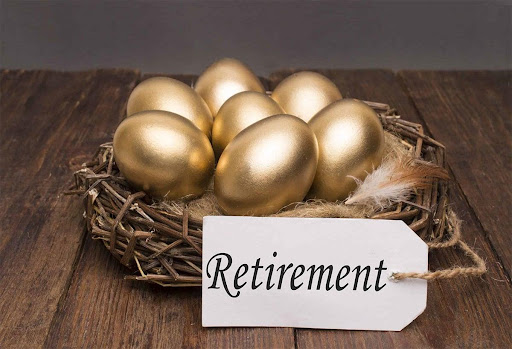
It’s a harsh reality that some people don’t worry too much about the future. Time passes inexorably, and several decades can be very unpredictable. But once your working life is over, you go to a well-deserved retirement and should enjoy it. And that’s possible if you have a large enough retirement fund.
You should start thinking about retirement savings as soon as you start working. If you start early, even smaller contributions can significantly increase your fund, and here’s how. The later you start, the more you have to save. However, don’t let that discourage you – with a good strategy, it’s never too late to start building your retirement nest egg.
The goal of each of us is to retire comfortably, i.e., to have enough money for a quality and carefree golden age. Everyone’s needs are different, so it’s not always possible to say with certainty how much money you will need in retirement.
But one thing is certain – the more, the better. So, if you haven’t started building your retirement nest egg yet, now is the right time. With our advice, you can increase your savings and welcome your retirement carefree.
Start Saving
We’ve already mentioned savings and how important it is to start early. Most employees have the option to contribute a portion of their earnings to employee-sponsored programs, such as a 401(k) or traditional IRA. Even if your employer doesn’t offer these, you can choose to invest in them with every paycheck.
Traditional retirement plans are a great way to build your retirement nest egg. They allow you to save money without having to pay taxes on it. That obligation will await you in retirement when you pay tax on withdrawals, whether a lump sum or deductibles.
Your 401(k) comes with a pre-set annual contribution limit. You may not invest more than $22,500 in it annually. If you are over 50, you’re entitled to additional catch-up deferrals of $7,500. That money is invested according to your choice from the employer’s selection of assets (usually bonds and mutual funds because they carry the least risk), and your account slowly increases over the years.
The amount you contribute to your retirement plan depends on many factors. For example, the later you start, the more you should add to your 401(k). If your income is high, you can certainly invest more than someone with a low salary. Also, if your income isn’t burdened with debt, your 401(k) contributions can be higher. But, in general, it’s good that this amount is between 10 and 15% of your gross income.
Benefit from Employer Match
Most companies offer the option to match your contributions to 401(k), which you shouldn’t miss. It means you should invest as much as your employer. For example, if it’s a 5% match, you should set aside 5% of your paycheck every month for 401(k) contributions.
Of course, you can always invest more than that. As your salary grows, aim to increase your contributions at least by one per cent each year until that amount is 15, and even 20% of your salary. Thus, you can build a substantial retirement fund in a few decades.
More on how employer matching works read below:
https://time.com/personal-finance/article/401k-matching/
Pay Off Your Debts

If you enter retirement with debt, whether a mortgage or another loan, it can significantly reduce your income during the golden age. That’s why it’s best to get rid of debt (or at least most of it) before you retire. If you get your spending habits in order, it can be easy.
To start with, cut the use of credit cards and focus on eliminating debts that burden you the most, namely those with the highest interest. Credit card debt, a student loan, or any other short-term loan can be a hassle, so try to pay them off as soon as possible or at least refinance so that the new loan is paid off before you retire.
As for the mortgage, early repayment should be carefully considered. With this loan, you bought a house, which is an asset whose value increases, so you can always tap it in to boost your retirement income.
In case you want to retire completely debt-free, you can make extra payments towards the mortgage principal and thus speed up repayment. Or you can think of downsizing. But in some cases, you can decide to reinvest that money rather than repaying the mortgage.
Invest

In case you have extra money (raise, inheritance, etc.) and no urgent debts to pay off, the smartest thing you can do is invest. That can bring additional income to your retirement nest egg. There are many investment options available, and how you build your portfolio depends on your risk appetite and long-term goals.
In general, there should be room for both less risky investments and those that carry a higher risk but also a higher profit. For example, what can stabilize your portfolio and reduce the risk of loss are investments in precious metals, especially gold. It’s an excellent long-term investment with a proven historical value which just goes up. You can invest in physical gold with a reputable partner like Goldco or decide on gold stocks or ETFs.
The key to smart retirement investing is portfolio diversification. Besides gold, it’s good to invest in assets like annuities, bonds, and stocks. The first two are low-risk, bringing you small but regular profit. As for stocks, you should choose wisely. These can be a good choice when you’re far from retirement, but in case you plan to retire soon, it’s better to base your portfolio on more secure assets.
Have an Emergency Fund

When life throws a curveball on you, you might be tempted to use money from your retirement savings. But this quick fix can cost you a lot because every early withdrawal carries an additional cost. Having an emergency fund will prevent you from doing so.
That might seem like too much renunciation, as you already save for retirement, but whenever possible, try to leave some money aside for at least three to six months. You never know what can happen and what can bring unforeseen costs, and this emergency fund can be a lifesaver.
Control Your Spending

Many times, this is easier said than done, but keeping your spending under control is one of the staples of building a retirement nest egg. Of course, this doesn’t mean you should live completely frugally and give up every pleasure. But you should keep track of where your money goes.
Try to write down your expenses to notice the unnecessary ones. Very often, these are small things that add up to your spending over time, for example, an overpriced to-go coffee or bottled water. Cancel any subscription or service you don’t need. Shopping wisely by following a list to avoid reckless purchases. For more tips on wise spending, see this source.
Building your retirement nest egg is all about making wise decisions on time. You don’t have to be a financial expert to find logic in most of these tips. Start on time, spend wisely, and manage your money the best way possible to welcome your golden age carefree.

